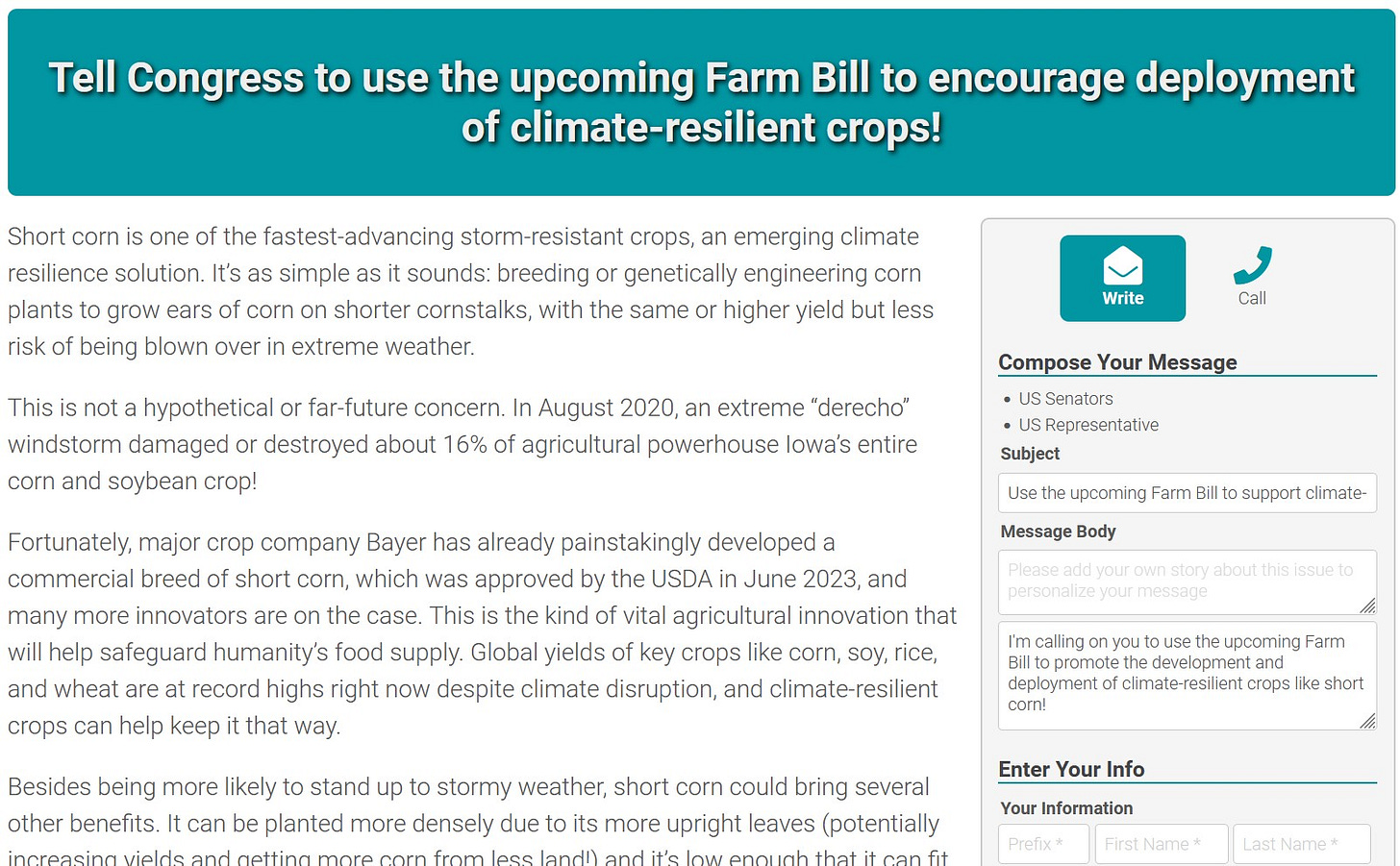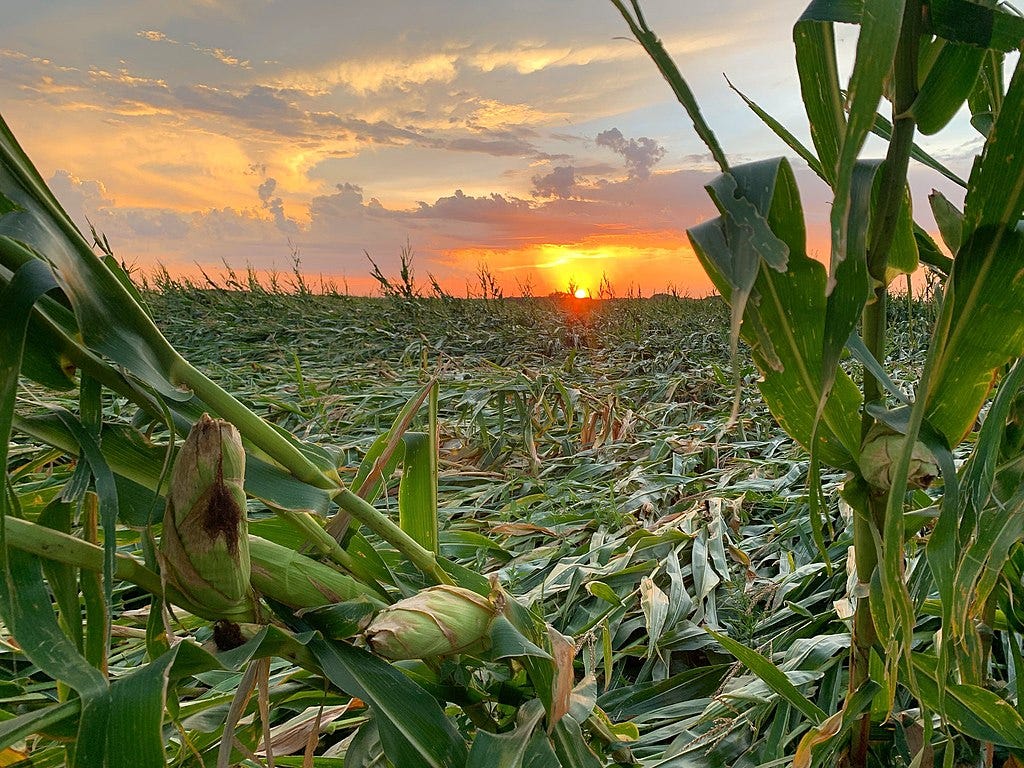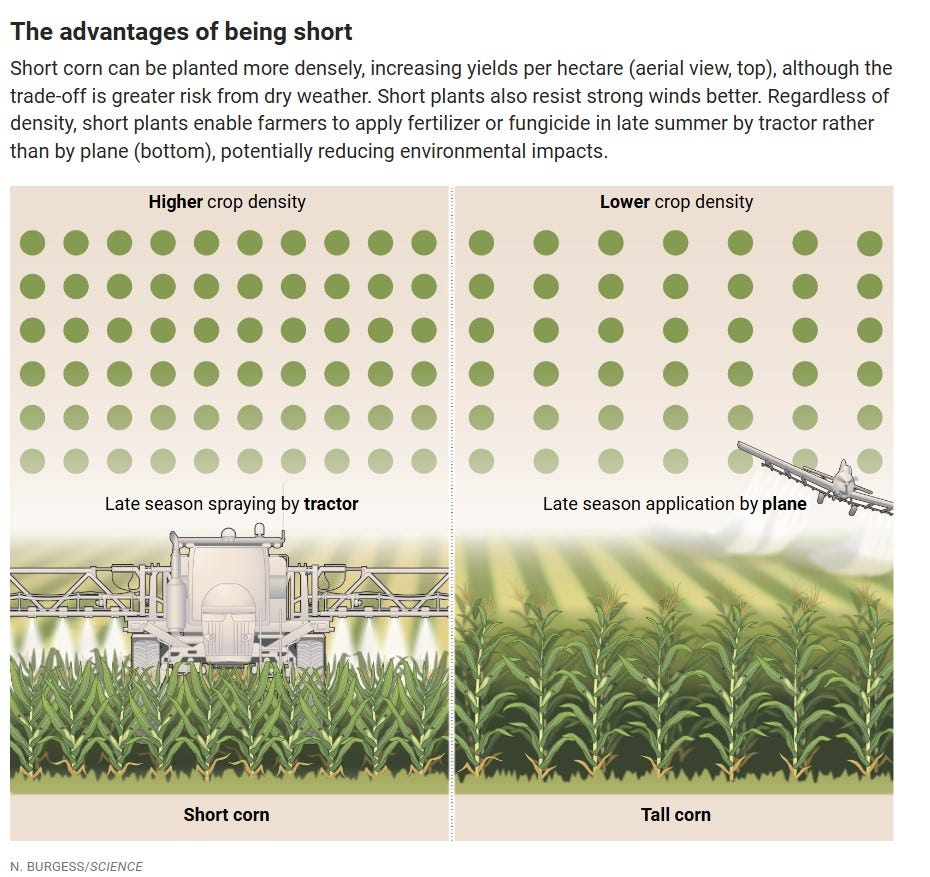Short corn is an early example of vital climate-resilient crops, more resistant to extreme weather events, helping safeguard our food supply.
Tell Congress to use the upcoming Farm Bill to encourage deployment of climate-resilient crops!
Touch or scan the QR code below to take today’s action in the app and earn trees!
Or take action on the Internet:
Reasons For Hope
Short corn is one of the fastest-advancing storm-resistant crops, an emerging climate resilience solution. It’s as simple as it sounds: breeding or genetically engineering corn plants to grow ears of corn on shorter cornstalks, with the same or higher yield but less risk of being blown over in extreme weather.
This is not a hypothetical or far-future concern. In August 2020, an extreme “derecho” windstorm damaged or destroyed about 16% of agricultural powerhouse Iowa’s entire corn and soybean crop!
Fortunately, major crop company Bayer has already painstakingly developed a commercial breed of short corn, which was approved by the USDA in June 2023, and many more innovators are on the case. This is the kind of vital agricultural innovation that will help safeguard humanity’s food supply. Global yields of key crops like corn, soy, rice, and wheat are at record highs right now despite climate disruption1, and climate-resilient crops can help keep it that way.
Besides being more likely to stand up to stormy weather, short corn could bring several other benefits. It can be planted more densely due to its more upright leaves (potentially increasing yields and getting more corn from less land!) and it’s low enough that it can fit under a tractor. This means that fertilizers and fungicides can be applied by tractor instead of by plane, which could help reduce the excess fertilizer runoff into the Mississippi River watershed that has contributed to “dead zones” in the Gulf of Mexico.
As we’ve mentioned before, Congress is still discussing the upcoming Farm Bill, a huge investment in American agriculture that’s up for renewal for the first time since 2018. The U.S. spends an average of $648 billion per year on Farm Bill programs, so this is a big deal. Climate-resilient crops like short corn are a brand-new invention and not really on the political radar screen yet, so there’s a great opportunity here to tell Congress to use the Farm Bill to help promote their research and deployment.
Tell your U.S. Senators and Representative to pass a Farm Bill promoting climate-resilient crops like short corn!
Though some crops like cocoa are already being seriously impacted by climate change.









Overall, great post highlighting a "reason for hope" in agricultural innovation!
One question: How might the widespread adoption of short corn impact biodiversity and genetic diversity in our agricultural systems? While it seems beneficial, I'm curious about the potential long-term ecological implications of shifting towards this new variety on a large scale.
Short corn - another common sense solution with no apparent downside! Thanks for sharing this information. Support the Farm Bill!